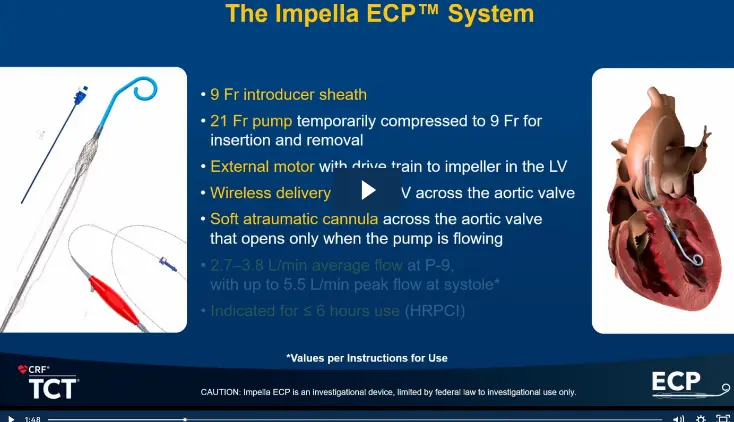Acute Kidney Injury (AKI), Complete Revascularization, Protected PCI
Optimal Revascularization Strategies During Protected PCI
Prof. Dr. Jan-Malte Sinning, a specialist in internal medicine and cardiology from St. Vinzenz Hospital, Cologne, discusses a publication he authored titled, “Defining the optimal revascularization strategy during protected high-risk procedures with Impella [heart pumps].” This is 1 of 8 articles published in European Heart Journal Supplements in 2022 describing best practices in Protected percutaneous coronary intervention (PCI).
“I think it’s very important to have a revascularization strategy plan for the patient,” Dr. Sinning states, adding, “What we have learned from several studies in the past is that we really have to stick to certain best practices to treat our patients in an optimal fashion.” He explains that this entails imaging guidance from intravascular ultrasound (IVUS) and lesion preparation strategies, such as rotational atherectomy and intravascular lithotripsy (IVL).
Dr. Sinning also emphasizes, “If we are going to treat the patient with hemodynamic support, with an Impella heart pump, in a so-called Protected PCI, it does really make sense to do everything in a single procedure.” When asked about concerns regarding increased contrast exposure during a single procedure, Dr. Sinning explains, ‘’What we’ve learned from several registry studies is that there seems to be a renal protective effect of the Impella [device], and so far that patients undergoing these high-risk procedures on Impella [device] support tend to develop less renal failure than these patients without the device.” He also stresses the importance of employing intravascular imaging to reduce contrast use. He looks forward to results from the PROTECT IV randomized controlled trial (RCT), which he hopes will demonstrate that these patients benefit from a hemodynamically supported procedure.
“At the end of the day, we’re dealing with chronic heart failure patients that are really ill and are suffering from their heart failure and the hemodynamic compromise situation; and I would say and conclude that without hemodynamic support by the Impella device we are not able to treat these patients at all.”
NPS-3930


